A five-day workshop
This five-day programme empowers participants with the skills and knowledge to understand and effectively apply best practice commercial and contracting principles and techniques, ensuring better contractor performance and greater valued add.
This is a fully assessed programme leading to the award of the World Contract and Commercial Management Association’s internationally recognised and coveted Contract and Commercial Management Practitioner Professional Certification.
- Develop robust contracting plans, including scopes of work and award strategies
- Undertake early market engagements to maximise competition
- Conduct effective contracting and commercial management activities, including ITT, RFP, negotiated outcomes
- Understand the legalities of contract and commercial management
- Negotiate effectively with key stakeholders and clients, making use of the key skills of persuading and influencing to optimise outcomes
- Undertake effective Supplier Relationship Management
- Appreciate the implications of national and organisational culture on contracting and commercial activities
- Set up and maintain contract and commercial management governance systems
- Take a proactive, collaborative, and agile approach to managing commercial contracts
- Develop and monitor appropriate and robust KPIs and SLAs to manage the contractor and facilitate improved contractor performance
- Appreciate the cross-functional nature of contract management
- Collaborate with clients to deliver sustainable performance and to manage and exceed client expectations
- Understand the roles and responsibilities of contract and commercial managers
- Use effective contractor selection and award methods and models (including the 10Cs model) and use these models to prepare robust propositions to clients
- Make effective use of lessons learned to promote improvements from less than optimal outcomes, using appropriate templates
- Effectively manage the process of change, claims, variations, and dispute resolution
- Develop and present robust propositions
- Make appropriate use of best practice contract and commercial management tools, techniques, and templates
Who should attend?
The practitioner level (CCMP) qualification is ideal for experienced (and semi-experienced) contract or commercial managers in both the public and private sectors who would like to demonstrate significant achievements in the field and gain knowledge and best practice insights. It is expected that participants will have had a range of experiences.
In-house and tailored event
We have the unique option to “contextualise” the course materials and WorldCC assessments. We will provide a pre course questionnaire that will give us an understanding of the client’s contract management operations, including types of contracts, values, contract duration, relationships with stakeholders and contractors, categories and participant profiles etc. This combined with our previous experience will provide us with insights into the clients contracting environment and that will be reflected in the course materials. We will follow up with a pre course Team/Zoom meeting to discuss requirements.
Option 1
This course is available as traditional classroom course held at our training centre in London or at the client’s venue. Participants will enjoy the benefits of the physical classroom experience. They will be able collaborate with fellow participants, discuss case studies, ask questions and generally participate in the live classroom event. delivered by Dr Ray Carter – author of “Practical Contract Management”.
Assessment
Participants are required to submit for assessment a series of 10 specially designed case studies and assignments. These will be reviewed and discussed during class time and participant are required to then write up and submit their assessments These are then assessed. Participants that successfully complete all assignments and the end of course one hour 120 multi choice test and the one-hour open case study examination will be recommended to the WCC for the award of the Contract and Commercial Management Practitioner Certification.
Option 2
“Live” Streamed Classroom Event via the Zoom platform
The number of participants will be limited to ensure an effective and enjoyable learning experience. The participants will have full access to the tutor, Dr Ray Carter and will be able collaborate with fellow participants, discuss case studies, ask questions and generally participate in the live streamed classroom event. This course is not a remote, self-paced online course using avatars, cartoons and voice over power points.
Expert trainer
Dr Ray Carter runs his own international training and development consultancy, specialising in procurement. A prolific author, his fourth book, Practical Contract Management, with Steve Kirby and Alan Oxenbury, was published in 2012. He has also had numerous articles and papers published in journals such as Supply Management and the Centre for Advanced Procurement’s Praxis publication.
Session outline
This workshop does not need to be delivered over five consecutive days. The workshop can be run over a number of weeks if preferred.
1. Introduction
- Aims
- Objectives
- KPIs
- Learning strategies
- Plan for the programme
2. The contracting context
- Key objectives of contract management
- Importance and impact on the business
3. Critical success factors
- Essential features of professional commercial and contract management and administration
- The 6-step model
4. Putting the ‘management’ into commercial and contract management
- Traditional v ‘new age’ models
- The need for a commercial approach
- The added value generated
5. Definitions
- ‘Commercial management’
- ‘Contract management’
- ‘Contracting’
- … and why have formal contracts?
6. Stakeholders
- Stakeholder mapping and analysis
- The ‘shared vision’ concept
- Engaging with key functions, e.g., HSE, finance, operations
7. Roles and responsibilities
- Contract administrators
- Stakeholders
8. Strategy and planning
Developing effective contracting plans and strategies
1. Contract control:
- Tools and techniques, including CPA and Gantt charts
- A project management approach
- Developing effective contract programmes
2. Tendering:
- Overview of the contracting cycle
- Requirement to tender
- Methods
- Rationale
- Exceptions
- Steps
- Gateways
- Controls
- One and two package bids
3. Preparing effective specifications:
- Developing robust scopes of works
- Use of performance specifications
- Output-based SOWs
4. Tender assessment and contract award I – framework:
- Tender board procedures
- Role of the tender board (including minor and major tender boards)
- Membership
- Administration
- Developing robust contract award strategies and presentations
1. Tender assessment and contract award II – processes:
- Pre-qualification processes
- CRS
- Vendor registration rules and processes
- Creating bidder lists
- Disqualification criteria
- Short-listing
- Using the 10Cs model
- Contract award and contract execution processes
2. Minor works orders:
- Process
- Need for competition
- Role and purpose
- Controls
- Risks
3. Contract strategy:
- Types of contract
- Call-offs
- Framework agreements
- Price agreements
- Supply agreements
4. Contract terms I: Pricing structures:
- Lump sum
- Unit price
- Cost plus
- Time and materials
- Alternative methods
- Target cost
- Gain share contracts
- Advance payments
- Price escalation clauses
5. Contract terms II: Other financial clauses:
- Insurance
- Currencies
- Parent body guarantees
- Tender bonds
- Performance bonds
- Retentions
- Sub-contracting
- Termination
- Invoicing
6. Contract terms III: Risk and reward:
- Incentive contracts
- Management and mitigation of contractual risk
1. Contract terms IV: Jurisdiction and related matters:
- Applicable laws and regulations
- Registration
- Commercial registry
- Commercial agencies
2. Managing the client-contractor relationship:
- Types of relationship
- Driving forces
- Link between type of contract and style of relationships
- Motivation – use of incentives and remedies
3. Disputes:
- Types of dispute
- Conflict resolution strategies
- Negotiation
- Mediation
- Arbitration
1. Performance measurement:
- KPIs
- Benchmarking
- Cost controls
- Validity of savings
- Balanced scorecards
- Using the KPI template
2. Personal qualities of the contract manager:
- Negotiation
- Communication
- Persuasion and influencing
- Working in a matrix environment
3. Contract terms V: Drafting skills:
- Drafting special terms
4. Variations:
- Contract and works variation orders
- Causes of variations
- Risk management
- Controls
- Prevention
- Negotiation with contractors
5. Claims:
- Claims management processes
- Controls
- Risk mitigation
- Schedules of rates
6. Close-out:
- Contract close-out and acceptance / completion
- HSE
- Final payments
- Performance evaluation
- Capturing the learning
7. Close:
- Review
- Final assessment
- Next steps









